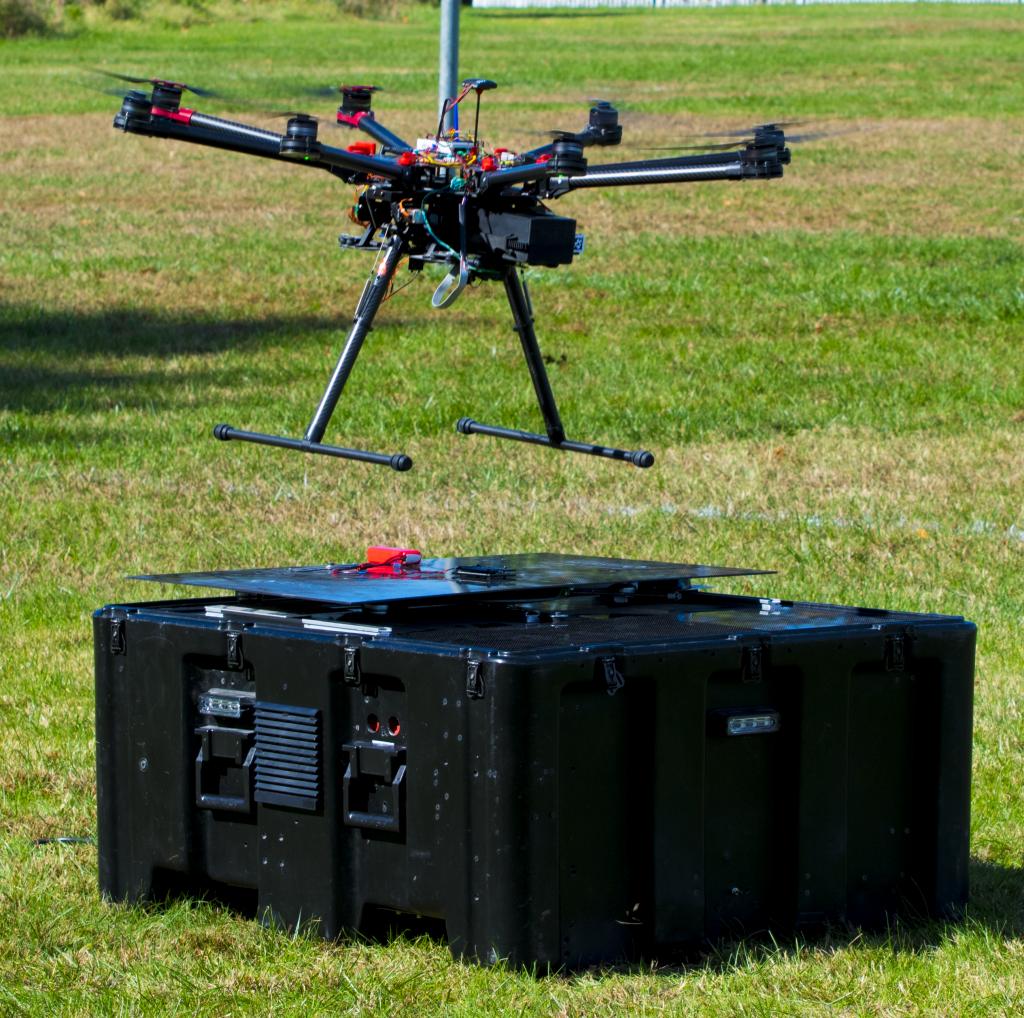
Asylon – taken loosely from the ancient Greek word for “safe harbor” – is an autonomous battery swap station, which can change, and charge, the battery for whichever drone you use. Or even for multiple types of drones, from the same station.
Asylon’s team, led by CEO Damon Henry, spent several years working in the aerospace industry before starting their company. Working on projects in large aerospace companies, the group saw a gap in the industry. “We realized that there were dozens of drone platforms, but not much on the infrastructure side,” says Henry. “We wanted to get into solving the infrastructure problems.”
The weather resistant, 3×3 “DroneHome” station offers a compelling use case. For applications in security or the monitoring of industrial infrastructure, DroneHome gives a relatively inexpensive drone (the DJI S900 is the first platform supported, but the system is drone agnostic) long endurance over a localized area. For distance applications, the swap stations could be daisy chained – and since they can be easily moved or placed permanently, they could provide the perfect solution for monitoring a stretch of transportation infrastructure or power lines.
Inspecting a bridge over a large expanse of water? No problem. Set up the swap station on one side, drive across, and operate from the other – allowing the drone to change batteries on the opposite bank to get all the way back to you. Applications like this allow a smaller, less expensive drone to do the dangerous job that might otherwise have to be performed by a person. The field-deployable stations are ideal for placement over difficult terrain – anywhere that drone operators don’t want to have to visit repeatedly, like the mountainsides of ski resorts or the boundaries of large infrastructure installations. Asylon is currently looking for more strategic partnerships with industry, which they say will expand the use cases for the station.
“Battery swap stations are going to change what’s possible – we’re seeing reductions in headcount, and reductions in drone investment,” says Henry. “The return on investment is there.”
You can see the Asylon system in action below:
Miriam McNabb is the Editor-in-Chief of DRONELIFE and CEO of JobForDrones, a professional drone services marketplace, and a fascinated observer of the emerging drone industry and the regulatory environment for drones. Miriam has penned over 3,000 articles focused on the commercial drone space and is an international speaker and recognized figure in the industry. Miriam has a degree from the University of Chicago and over 20 years of experience in high tech sales and marketing for new technologies.
For drone industry consulting or writing, Email Miriam.
TWITTER:@spaldingbarker
Subscribe to DroneLife here.
